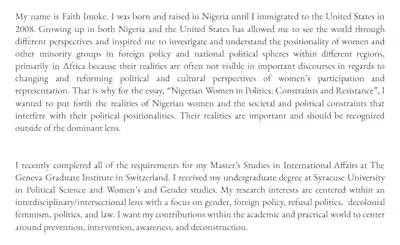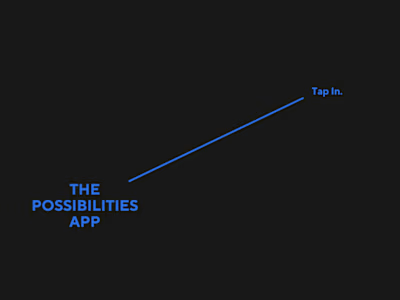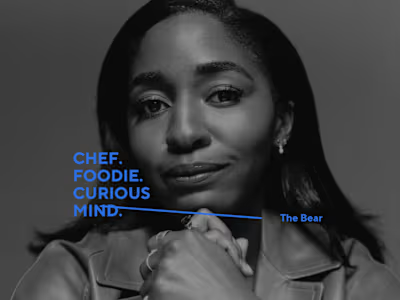Call Your Mom - a feature story
I wrote an article on the implications of Dr Vicki Helgeson's work for Carnegie Mellon University students. This article required that I translate complex concepts into useful information for college students. This was an exercise in scientific writing and making a niche topic accessible to a non-expert audience.
Call Your Mom
Dr Helgeson’s research on the way we cope reveals that when times get tough, sometimes you just gotta suck it up and call your mom.
The transition from high school to college is hard. Growing up? Also hard. So much about our lives requires us to cope and we are frequently encouraged to take care of ourselves which is helpful and not impossible, but it is hard. Probably because we’re trying to do it all by ourselves. But often, people don’t cope alone if they don’t have to. When faced with major problems like chronic illness some cope communally: with their partners, with their parents, with their social networks.
Chronic illness doesn’t seem anything like a young adult’s transition from high school to college but recent research in Dr. Vicki Helgeson’s Social and Health Psychology lab at Carnegie Mellon University has major implications for college students all the same.
Dr Helgeson has studied coping, relationships, and chronic illness for 30 years. She doesn't remember exactly when she stumbled upon communal coping but when she describes it her eyes sparkle. When she observes, "vivid examples of communal coping," it brings, "music to [her] ears." The way Dr Helgeson defines communal coping reveals that even though getting through college is your problem, you don’t have to cope alone.
According to her, communal coping can be split into two parts: shared appraisal, “when one individual technically has a stressor and that person and their partner perceive the stressor as a joint problem,” and collaboration which occurs when, “…they work together to address it.” Researchers have tackled the way individuals cope or, “deal effectively with something difficult," and they have explored communal coping with shared stressors like natural disasters. But Dr Helgeson's work is unique because she chooses to study communal coping with stressors that are generally viewed as problems belonging to one individual. As Dr Helgeson has always been interested in Health Psychology, she studies communal coping in the context of chronic illness but predicts that the positive effects could carry through many situations.
And boy, are those effects positive! Shared appraisal alone is associated with being more receptive to help from partners. It is also associated with chronic illness patients being more willing to ask for help. The effects of communal coping are even better. Communal coping is correlated with enhanced psychological well-being, increased self-care, and improved physical health among chronic illness patients, all of which college students could use. Partners that engage in communal coping with chronic illness patients also see increased psychological well-being. Everyone involved reaps benefits.
Dr Helgeson has found that factors explaining why communal coping works may include: an enhanced sense of control, viewing illness as less stressful, increased resources for self-regulation, and enhanced relationship quality. When you think about it, it all kind of makes sense. Cute couples that say things like, “...we think of [diabetes] as our own problem. It’s like we both have diabetes,” have a way different dynamic. Couples like these truly capitalize on the idea that two heads are better than one.
In a communally coping couple where one partner has diabetes, two people are trying to get a handle on blood glucose levels. Two people are dealing with the stress. Two people are regulating the way they eat, exercise, and live. There is power in that. That power carries beyond romantic partnerships. The same dynamic can be seen in parent-child relationships and results in better health outcomes for kids with chronic illness and less worrying in their parents.
What does all of that mean for college students? College students do not live with their parents and they don't always have stable partnerships. Even though studies in her lab have begun looking at college students, Dr Helgeson has yet to know for sure. “You see a lot of variability. I mean your stressors are different”. College students stress about grades, career aspirations, relationships, money, and on and on. “If you’re not doing well in class are you going to communally cope with your romantic partner about that? Maybe but I don’t know”. Like a lot of early twenty-somethings, Dr. Helgeson just doesn’t know yet but she predicts college students are in a state of transition.
For years, students have relied on their parents for support. It’s only natural. Living in a dorm doesn’t change the fact that you have been with your parents for 18 years. Dr Helgeson notes that when children and parents share a stressor like chronic illness they can work together. When they collaborate, children with chronic illnesses have better health outcomes too. The same thing probably goes for the stressors students deal with in college. Students have friends but they may not always know how to provide support through large-scale problems. Students have professors that may feel bad for them but aren’t close enough to offer tangible help. When it comes down to it, sometimes you just have to call your mom.
After a tough conversation with a student, Dr Helgeson was, “so happy,” to hear that she called her parents for help. “Because maybe that’s what I did. I got her to call her mom. She and her mom worked on it together and then she was – that’s the whole thing with communal coping when someone gives you support you don’t even see it as support you just see as ‘well we’re working on this together’.”
You can experience communal coping with your parents because there are so many years of background in that relationship. Dr Helgeson is currently conducting a study that has followed kids with Type 1 diabetes since before they were teens. They’re in their twenties now and she’s interested in seeing if the communal coping they engage in with their parents transfers to their partners. But until that transfer is made, these kids did not have to deal with their stressors alone and neither do you. “Something happens to you and your first gut [reaction] is I’m going call my mom or I’m going to call my dad and they’re going to give you advice,” and they’ll do it without a second thought.
So, the next time you’re feeling a little too stressed, reach out. Call your parents. Research says you’ll be happier and healthier for it.
Like this project
Posted Jul 31, 2023
A feature story focused on the concept of communal coping. An exercise in scientific communication.
Likes
0
Views
2







